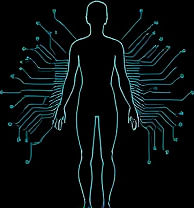Overcoming Circadian Rhythm Disruptors
 by Marlene Keeling
by Marlene Keeling
Circadian rhythm disruptors can undermine daily health and performance, affecting sleep and energy levels. Learn about key factors like artificial light and poor habits, and discover biohacking strategies using technology and natural methods to restore balance and enhance well-being.

Circadian rhythm plays a vital role in regulating our body's internal clock, influencing sleep patterns, hormone levels, and overall vitality. These natural cycles help synchronize our biology with the environment, making it essential for maintaining peak health.
One major issue involves circadian rhythm disruptors that interfere with this delicate balance. For instance, exposure to artificial light at night from screens can suppress melatonin production, leading to poorer sleep quality. Irregular meal times also act as disruptors by confusing the body's timing mechanisms.
In the context of biohacking, addressing these challenges offers a path to personal enhancement. Wearable devices, such as fitness trackers, provide real-time data on sleep cycles and activity levels, allowing users to identify patterns and make adjustments. Such technology empowers individuals to track and optimize their routines for better outcomes.
The Impact of Disruptors on Daily Life
Disruptors like inconsistent sleep schedules can lead to fatigue and reduced cognitive function. Shift work often creates these problems, as it forces the body out of its natural rhythm. Poor diet choices, such as consuming caffeine late in the day, add to the burden by altering alertness at inopportune times.
Health optimization becomes crucial here, as chronic disruption may contribute to issues like weakened immune response. Blue light from devices stands out as a common culprit, emitting wavelengths that mimic daylight and delay sleep onset. Over time, this can affect mood and productivity, highlighting the need for proactive measures.
Biohacking Strategies for Restoration
To counteract these effects, incorporating nootropics into a routine can support brain health and sleep regulation. Certain supplements, known for their cognitive benefits, help stabilize rhythms without harsh side effects. For example, natural compounds that promote relaxation can be used strategically to ease the transition into restful periods.
Wearable technology further aids in this process by monitoring heart rate variability and sleep stages. Devices like smartwatches offer insights that guide users toward better habits, such as dimming lights earlier in the evening. Physical activity, timed appropriately, serves as another tool; morning exercises align with the body's natural wakeful state, enhancing energy throughout the day.
Practical Tips for Enhancement
Building a routine around natural light exposure can minimize disruptors and foster improvement. Starting the day with outdoor time helps reset the internal clock, promoting alertness and focus. Evening wind-down rituals, like reading or meditation, create a buffer against artificial influences.
Nootropics play a supportive role by targeting specific aspects of brain function, such as improving memory and reducing stress. When combined with consistent schedules, these elements form a comprehensive approach to wellness. Monitoring progress through apps connected to wearables ensures that changes are effective and sustainable.
For those interested in deeper personal enhancement, experimenting with controlled fasting windows can align eating patterns with circadian needs. This method leverages the body's metabolic rhythms, potentially boosting energy and mental clarity.
Long-Term Benefits of Rhythm Optimization
By focusing on these strategies, individuals can achieve greater resilience against disruptors. Improved sleep quality often leads to enhanced performance in work and daily activities, making biohacking a worthwhile pursuit. Wearable tools continue to evolve, offering more precise data that informs decisions and encourages ongoing refinement.
In essence, addressing disruptors through thoughtful integration of technology and lifestyle choices paves the way for sustained health benefits. This approach not only supports physical well-being but also nurtures mental sharpness, motivating a cycle of continuous self-improvement. As more people adopt these practices, the potential for widespread positive change grows.
Ultimately, the key lies in awareness and action. By prioritizing rhythm harmony, tech-savvy enthusiasts can unlock new levels of vitality and efficiency in their lives.
